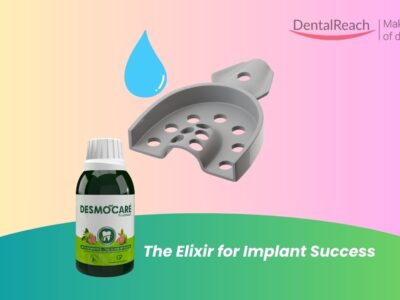Bacteria in the mouth can enter the bloodstream via damaged gingiva, and in the case of a weakened blood-brain barrier, they can also enter the brain and lead to diseases. However, they can also indirectly affect the central nervous system. An analysis of genetic and patient data has shown a causal relationship between oral bacteria and depression or anxiety.

Summary :
The connection between the oral microbiome and the psyche
Genome-wide association study and patient data on depression and anxiety
Certain salivary and dorsal bacteria affect the psyche
Mechanisms, and strategies for prevention and treatment are the goal of further studies
The microbiome, particularly that of the gut, is increasingly recognized as important for health and immune system activity. Effects on the psyche are already known. The oral microbiome, on the other hand, is mainly known for the health of the teeth and gums. However, periodontal disease not only affects the gums and the periodontium, but can also allow bacteria to penetrate through the gums into the bloodstream and, in the case of a weakened blood-brain barrier, into the brain. Periodontosis can also indirectly affect the central nervous system by means of pro-inflammatory messengers. How the oral microbiome affects mental health has, however, hardly been studied to date.
The authors of the present studies analyzed the results of a genome-wide association study (GWAS) on the oral microbiome with a view to polygenic risk scores of 285 salivary microbiomes and 309 microbiomes from the dorsum of the tongue.
To analyze self-reported anxiety and depression, the scientists used data from the large UK Biobank cohort, from which health data and biological samples (e.g. saliva) were obtained. Results of the GAD-7 survey of 155,076 participants and anxiety status data of 138,709 participants (27,898 patients, 110,811 controls) could be analyzed for anxiety. For depression, PHQ-9 questionnaires from 154,360 participants and self-reported depression from 157,459 participants (76,672 patients, 80,787 controls) were considered.
Comparison of genome-wide association study with patient data
The scientists were able to identify significant interactions between the salivary and dorsal tongue microbiomes and anxiety and depression. The following bacteria proved to be relevant for both anxiety and depression:
- Centipeda periodontii
- Granulicatella
- Eggerthia (identified in two different databases)
According to this analysis, elements of the oral microbiome were also rated as possible triggers for the psychological symptoms.
Bacteria in the mouth are implicated in the development of depression and anxiety
The study systematically examined the connection between bacteria in the oral microbiome and anxiety or depression. Based on several databases, bacteria in the mouth have been found to be likely involved in the development of mental illness. The exact mechanisms of such disease progression and possible ways to prevent it, for example, dental medicine (prevention against periodontal disease), oral hygiene, and nutritional strategies to withdraw nutrients from certain bacteria in the mouth or to provide them in a targeted manner, must now be further investigated.




















Comments